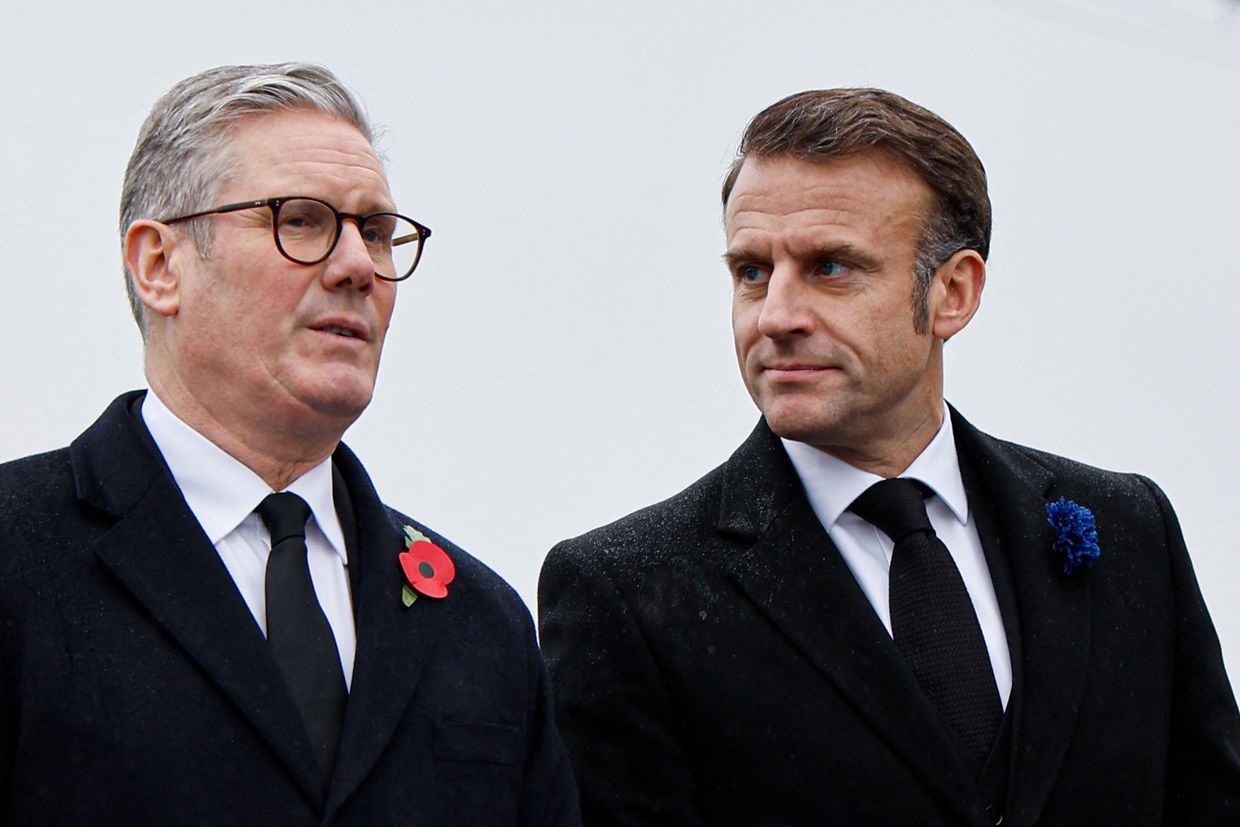73% of Ukrainians say Trump is bad for Ukraine, poll shows

Around 73% of Ukrainians believe that U.S. President Donald Trump is bad for Ukraine, a major spike from December 2024, when only 21% saw him negatively, a survey by the Kyiv International Institute of Sociology (KIIS) published on April 1 said.
Last December, after Trump was reelected but before he took office, 54% of Ukrainians believed that the new U.S. president would have a positive impact on Ukraine. Only 19% thought so in March, KIIS said.
The Trump administration has brought a major shift to Washington's policy on Ukraine.
Pledging to broker a swift peace deal, Trump has sought to renew ties with Russia while repeatedly praising his relationship with Russian President Vladimir Putin.
The U.S. president has also strong-armed Ukraine into ceasefire negotiations by temporarily cutting off military and intelligence support early in March before publicly berating President Volodymyr Zelensky in the Oval Office on Feb. 28.
Between March 12 and 22, 55% of Ukrainians said they expect a rather or completely unjust peace deal from Trump, a minor drop from 58% between Feb. 14 and March 4 but a significant increase from 31% in December.
In turn, 23% of Ukrainians believed that Trump would bring a just peace in December 2024, 11% between Feb. 14 and March 4, and 18% between March 12 and 22.

March 11 saw the U.S. and Ukraine agree on a 30-day ceasefire, which was perceived positively among Ukrainians, but Moscow has rejected the deal.
Russia only agreed to a partial ceasefire on strikes against energy facilities and in the Black Sea. Kyiv has already accused Russia of violating the energy ceasefire, while the future of the Black Sea ceasefire is in doubt as Moscow has linked it to the lifting of some Western sanctions.
Ukrainians now see Europe as a more reliable ally than the U.S. While 64% of respondents said they think European partners want Ukraine to achieve peace on acceptable terms, only 24% think this about the U.S.
Some 67% of Ukrainians believe that the U.S. is tired of supporting Ukraine and is pushing for concessions on Kyiv's part.
The survey reflects the shifting mood in Ukraine regarding Trump's presidency. Earlier research showed that before Jan. 20, many Ukrainians hoped for Trump to be more decisive in pressuring Russia toward a just peace than his predecessor, former President Joe Biden.
The Biden administration donated more than $100 billion in military and economic support to Ukraine during the full-scale war. At the same time, the ex-president's policy has been criticized as overly cautious and self-restricting.
Trump has not approved any additional aid packages, only allowing the continued flow of the previously approved support. His administration also gutted various programs that Ukraine benefited from, from USAID programs funding energy infrastructure and civil society to a project tracking abducted Ukrainian children.











